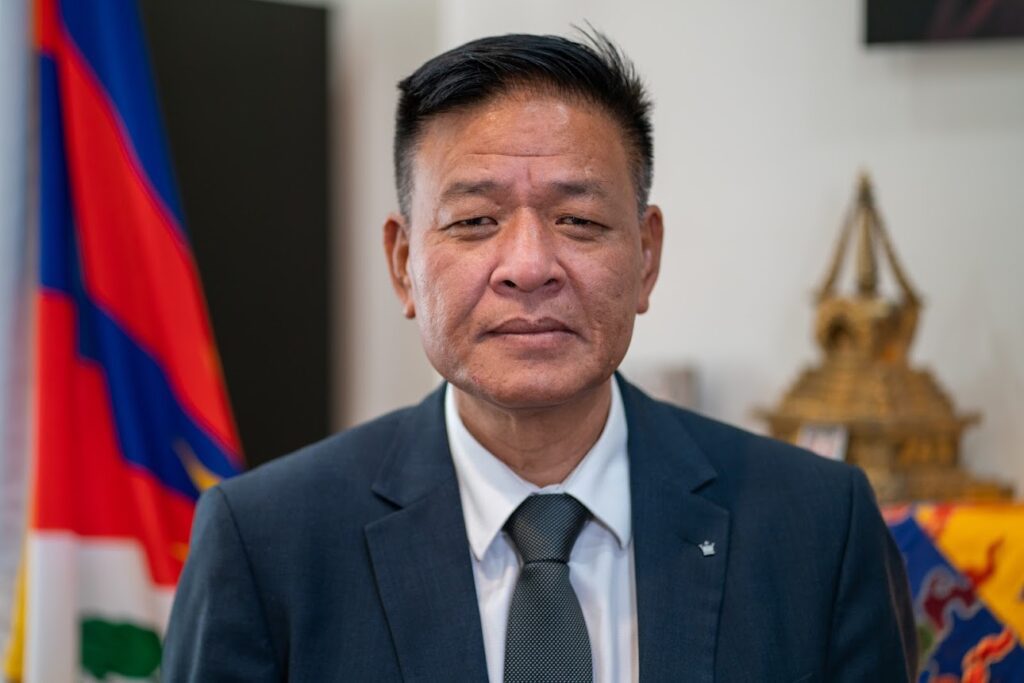By Tsering Dhundup
DHARAMSHALA June 6: The Chinese government is facing allegations of undermining free speech in Australia after its attempt to block the head of Tibet’s government-in-exile from speaking at the National Press Club. The scheduled appearance of President Penpa Tsering has sparked heated debate, with officials from the Chinese embassy expressing their displeasure to Maurice Reilly, the chief executive of the press club.
Last week, representatives from the Chinese embassy met with Maurice Reilly in Canberra to convey their objection regarding Penpa Tsering’s June 20 appearance and requested that his invitation be revoked. The embassy argued that allowing Tsering to speak at the National Press Club would enable him to engage in separatist activities, a label China imposes on the peaceful Tibetan movement. In a letter to Reilly, the embassy urged Australia to recognize the nature of the Dalai clique, respect China’s core interests and concerns, and take action to prevent any negative impact on China-Australia relations and media cooperation. Referring to Tibet as Xizang, the letter claimed that the human rights situation in the region is at its best in history and that it is endorsed by people from all ethnic groups.
In response to inquiries from The Sydney Morning Herald and The Age, Maurice Reilly clarified that there are no plans to cancel Penpa Tsering’s appearance, and tickets for the event are already on sale on the press club’s website. Reilly emphasized that the National Press Club is an institution dedicated to free speech, free media, and public debate. He informed the embassy officials that the club’s board independently decides on speakers, irrespective of government or other stakeholders’ opinions. Reilly also highlighted that speakers are allowed to express their views while facing questioning and challenges from media members.
Tenzin Lekshay, the official spokesperson of the Central Tibetan Administration told Phayul, “Over the years, the Chinese communist regime attempts to suppress and silence the voice of the Tibetan people, particularly of Tibetan political leaders visiting abroad. The most recent case of the National Press Club of Australia is a clear example of China’s high-handed approach to Transnational repression not just against the Tibetans but of the free world. The world must stand against China’s malevolence and systemic network of suppression and tyranny.”
Tibetan human rights campaigner Kyinzom Dhongdue, a former member of the Tibetan parliament-in-exile, and a politician in Australia strongly criticized the Chinese government’s actions, denouncing it as bullying and an attempt to undermine Australian institutions and silence critics. Dhongdue emphasized that there is no place for Chinese censorship and propaganda in Australia, particularly at the National Press Club, which is known for advocating media freedom and free speech. She pointed out that the Chinese ambassador had spoken at the press club last year, suggesting that the leader of the Tibetan people should be afforded the same opportunity. She also highlighted the Tibetan community’s familiarity with China’s repressive actions in Australia and globally and said, “Tibetans are all too familiar with China’s long arm of repression in Australia and globally.”
The Chinese embassy declined to comment on the accusations, leaving the situation unresolved. Penpa Tsering, during his appearance at the US Congress in March, warned that Tibet would face a slow demise unless the Chinese government altered its current policies. Last year, three United Nations experts expressed alarm over what they perceived as a policy of forced assimilation of the Tibetan identity into the dominant Han-Chinese majority. These experts highlighted oppressive actions against Tibetan educational, religious, and linguistic institutions. They also found that around 1 million Tibetan children were subjected to a compulsory education curriculum in Mandarin Chinese, devoid of access to traditional or culturally relevant learning.
As the controversy continues to unfold, experts say that it is essential to closely monitor how the Australian government and relevant stakeholders respond to these allegations, and whether they take any steps to safeguard free speech and the right to express diverse perspectives.










